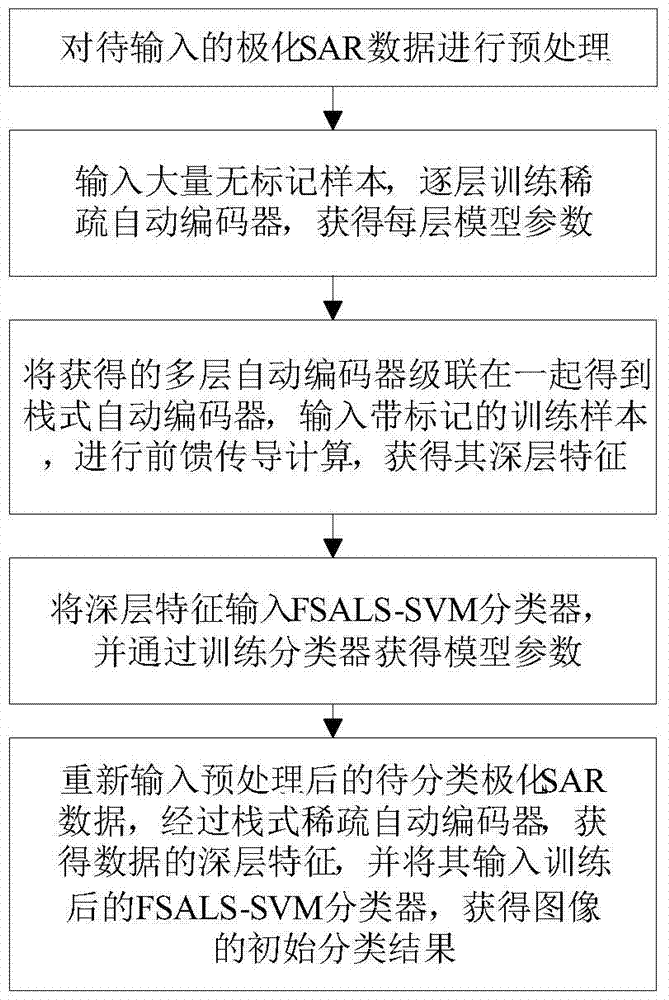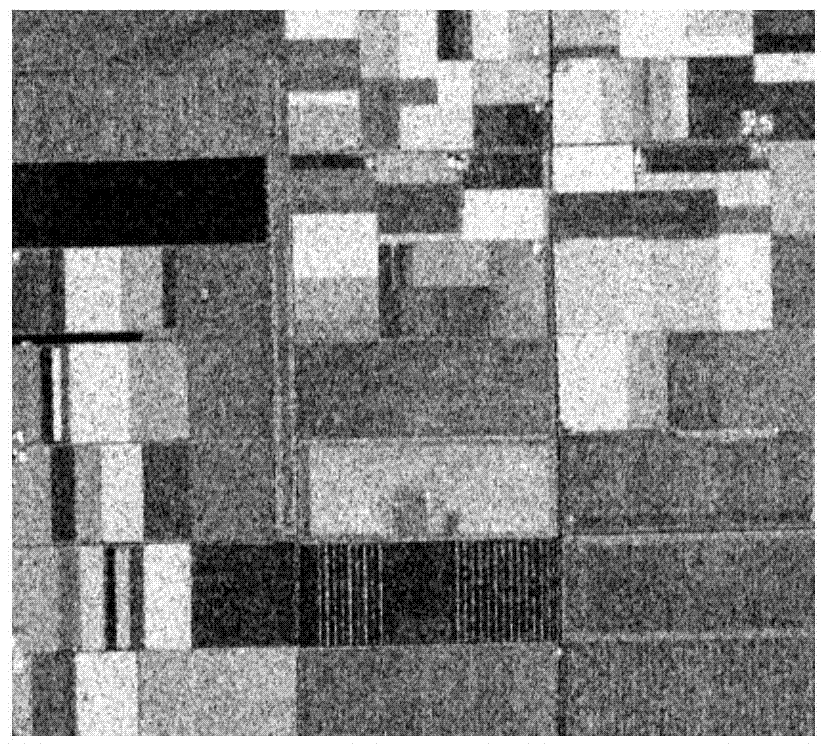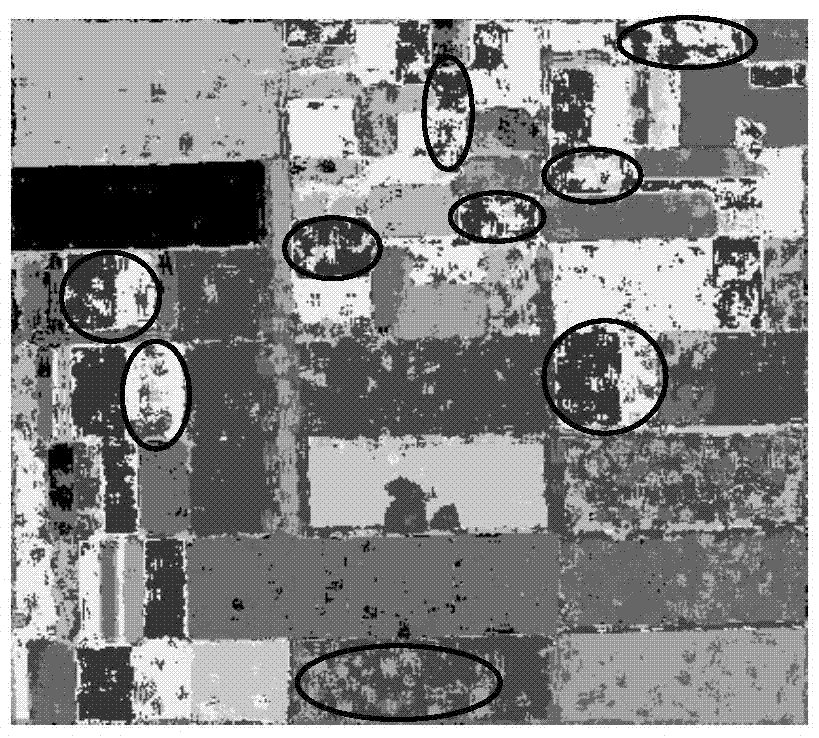Classification of polarimetric SAR images based on SSae and FSALS‑SVM
A FSALS-SVM and image technology, applied in the field of image processing, can solve manual research, unrealistic problems, etc., and achieve the effect of improving classification accuracy, strengthening coherence, and excellent feature learning ability
- Summary
- Abstract
- Description
- Claims
- Application Information
AI Technical Summary
Problems solved by technology
Method used
Image
Examples
Embodiment Construction
[0020] refer to figure 1 , the specific implementation steps of the present invention are as follows:
[0021] Step 1. Preprocess all polarimetric SAR image data to be input to obtain unlabeled training samples and labeled training samples.
[0022] (1a) Perform Lee filtering with a sliding window size of 7×7 for all polarimetric SAR image data to be input;
[0023] (1b) Any pixel n of the polarimetric SAR image after Lee filtering can be expressed as a 3×3 covariance matrix M n :
[0024]
[0025] Among them, n∈[1,2,…,N], N is the number of pixels contained in the polarimetric SAR image, and the matrix M n The uppercase letters A~I in are all real numbers, and these letters can be composed into a column vector t n =[A B C D E F G H I] T , for the column vector t represented by each pixel n n Discharge in sequence to form the entire sample set to be classified;
[0026] (1c) Simply process the sample set to be classified obtained in (1b) to facilitate classification....
PUM
 Login to View More
Login to View More Abstract
Description
Claims
Application Information
 Login to View More
Login to View More - R&D
- Intellectual Property
- Life Sciences
- Materials
- Tech Scout
- Unparalleled Data Quality
- Higher Quality Content
- 60% Fewer Hallucinations
Browse by: Latest US Patents, China's latest patents, Technical Efficacy Thesaurus, Application Domain, Technology Topic, Popular Technical Reports.
© 2025 PatSnap. All rights reserved.Legal|Privacy policy|Modern Slavery Act Transparency Statement|Sitemap|About US| Contact US: help@patsnap.com



